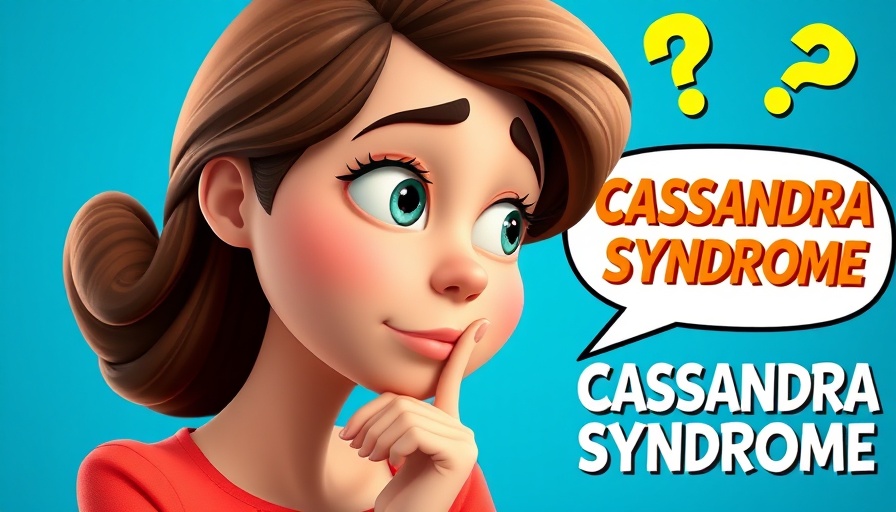
Unveiling Cassandra Syndrome: A Hidden Struggle
Cassandra Syndrome, often overlooked in discussions about mental health, refers to the emotional distress experienced by partners of individuals with autism. This phenomenon garners attention due, in part, to its implications for relationships, particularly in how it affects a partner's emotional well-being. Given the unique challenges faced by individuals on the autism spectrum, this syndrome raises questions about both the emotional support needed and the dynamics of these relationships.
The Connection Between Autism and Cassandra Syndrome
While there is no definitive research establishing a direct link between autistic individuals and the prevalence of Cassandra Syndrome among their partners, anecdotal reports suggest that many partners often experience feelings of isolation and misunderstanding. One significant factor is that autistic individuals may struggle to express emotions in ways that non-autistic partners understand. This communication gap can lead to frustration and emotional detachment, contributing to the development of Cassandra Syndrome.
Understanding Emotional Experiences
For women between the ages of 35-60, especially those involved in education, it is vital to recognize the emotional layers associated with relationships affected by autism. The experience of feeling unloved or disconnected can be deeply challenging, particularly for those who deduce their worth from their relationships. Partners often report sensation of being unheard or unseen, which can compound feelings of isolation, further pushing them into an emotional abyss.
The Story of Resilience and Hope
Consider Sarah, a dedicated teacher and a partner of an autistic individual, who realized she struggled with feelings akin to Cassandra Syndrome. With a supportive community and counseling, she began to understand her emotional needs better and sought clearer lines of communication with her partner. This change not only improved her emotional state but also enriched their relationship. By sharing her story, Sarah highlights that seeking help is not a weakness; instead, it's a proactive step toward better mental health.
Creating Supportive Environments
In light of these challenges, creating supportive environments both at home and in professional settings is paramount. This includes fostering open discussions about feelings and ensuring that emotional needs are addressed. Educators and leaders in the field can advocate for mental health awareness seminars, providing resources for couples navigating these complex emotional terrains.
Insights to Empower Change
Understanding the dynamics of relationships between autistic individuals and their partners can be enlightening for educators. It allows them to implement strategies that promote empathy and connection in classrooms, ultimately affecting how emotional lessons are conveyed. This proactive approach not only helps those experiencing Cassandra Syndrome but enriches classroom dynamics overall.
Take Action: Foster Awareness
As relationships affected by autism may engender hidden emotional turmoil, the need for awareness is crucial. Educators, parents, and partners should not shy away from discussing these difficulties. Through increased awareness and shared experiences, we can build a nurturing community that prioritizes emotional health.
For those in similar situations as Sarah, remember that assistance is within reach. Don’t hesitate to seek professional help, whether through counseling, workshops, or support groups. Taking that first step could pave the way for transformation not just in your personal life, but could become a shared beacon of hope for others facing similar struggles.
 Add Row
Add Row  Add
Add 




 Add Row
Add Row  Add
Add 

Write A Comment